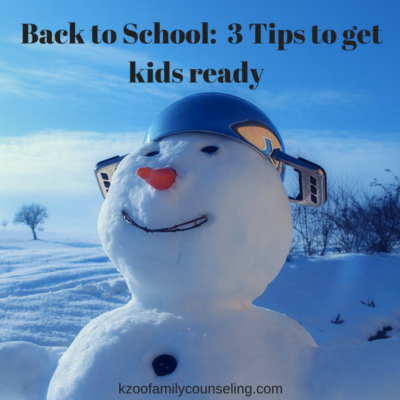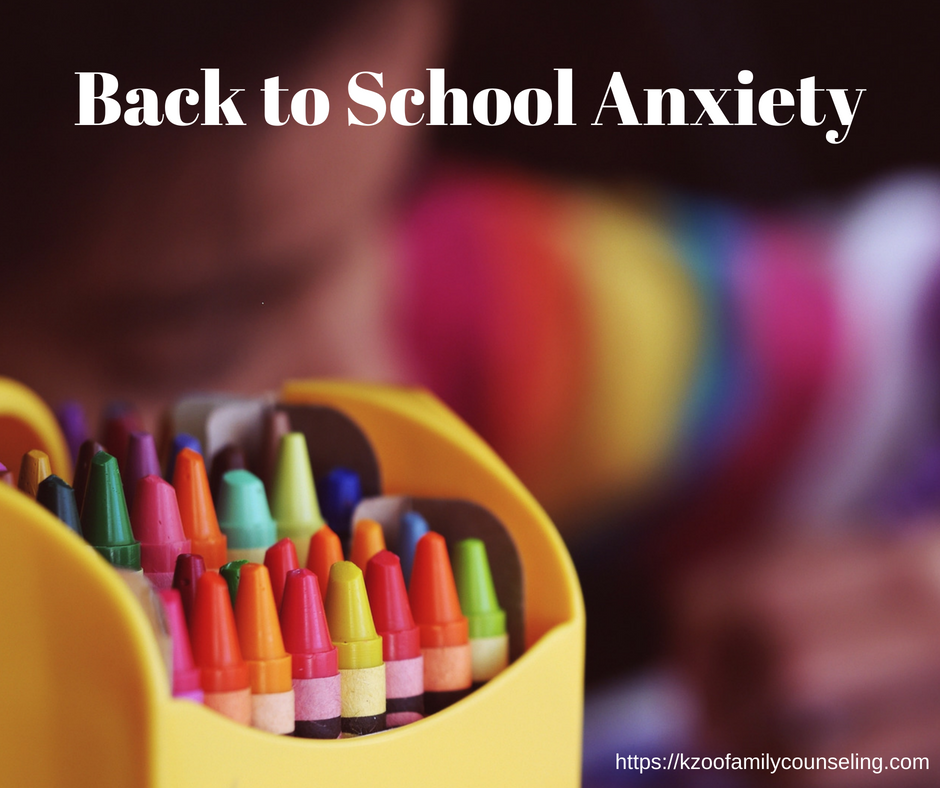Battling Back to School Anxiety: Strategies for a Smooth Transition
As summer vacations come to an end, the anticipation of returning to school can be both exciting and anxiety-inducing. For many students, parents, and even teachers, the start of a new school year can trigger a wave of back-to-school anxiety. This anxiety is a common and normal response to change and uncertainty, but it’s essential to address it to ensure a smooth transition. In this blog post, we’ll explore what back-to-school anxiety is, its common causes, and strategies to cope with and conquer it.
Understanding Back-to-School Anxiety
Back-to-school anxiety is a psychological and emotional response to the impending start of a new academic year. It can affect students of all ages, parents, and even educators. This anxiety often stems from various sources, such as:
- Academic Pressure: The fear of falling behind in studies or struggling with coursework can be a significant trigger for students. The pressure to excel academically can be overwhelming.
- Social Concerns: Worries about fitting in, making new friends, or dealing with social pressures can lead to anxiety. For some, the fear of bullying or rejection can be particularly distressing.
- Transitions: Starting a new school, moving to a higher grade, or transitioning from elementary to middle school or middle to high school can be daunting, as it involves adapting to new environments and routines.
- Separation Anxiety: Younger children may experience separation anxiety from their parents or caregivers when they have to spend long hours away from home for the first time.
- Performance Anxiety: Teachers and educators may also experience anxiety related to their classroom responsibilities, curriculum planning, and meeting educational goals.
Strategies to Tackle Back-to-School Anxiety
- Open Communication: Encourage open and honest conversations with your child about their concerns. Listen actively and empathetically, validate their feelings, and provide reassurance. Reassure them that it’s normal to feel anxious, and that you’re there to support them.
- Gradual Adjustment: Start adjusting to the school routine a few weeks before the academic year begins. Gradually shift bedtime and wake-up times to align with the school schedule, and introduce a consistent daily routine.
- Familiarize Yourself: Visit the school with your child if possible, especially if they’re entering a new school. Familiarity with the school environment can ease their anxiety.
- Set Realistic Expectations: Discuss academic goals and set achievable expectations. Emphasize the importance of effort and personal growth over perfection.
- Teach Coping Strategies: Teach your child relaxation techniques like deep breathing, mindfulness, or meditation. These can help manage anxiety when it arises.
- Encourage Social Interaction: Encourage your child to engage in extracurricular activities or social events to make friends and build a support system.
- Lead by Example: Parents and educators can set a positive example by managing their stress effectively. Demonstrating resilience and coping strategies can inspire children to do the same.
- Seek Professional Help: If anxiety persists and significantly affects daily life, consider consulting a mental health professional who specializes in child and adolescent anxiety disorders.
Back-to-school anxiety is a common experience for students, parents, and teachers alike. While it may be a natural response to change, it’s essential to address it proactively. By employing the strategies mentioned above and fostering open communication, we can help our children and ourselves navigate the transition back to school with confidence and resilience. Remember that with time, patience, and support, back-to-school anxiety can be overcome, allowing everyone to embrace the new academic year with enthusiasm and positivity
Jeff LaPonsie LMSW

Jeff LaPonsie is a clinical social worker at Kalamazoo Child and Family Counseling, PLLC. He provides counseling to children and families in the Kalamazoo, Portage, Mattawan, and South West Michigan areas. He is passionate about helping challenging children and frustrated parents. Jeff has over seven years of experience working with at-risk youth. His clinical expertise includes working with children with behavioral, anxiety, attachment, and trauma-related disorders.




Recent Comments